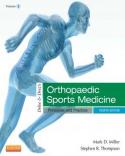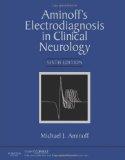Welcome! New Academic Year!
Pat Thibodeau, Associate Dean for Library Services & Archives
 As the Medical Center Library & Archives welcomes you to Duke and another academic year, we are implementing two very special projects, as well as continuing our strong suite of services and resources. Please visit the Library facility, located on Levels 1-3 of the Mudd building, as well as our Website, which has links to hundreds of health-related resources and services.
As the Medical Center Library & Archives welcomes you to Duke and another academic year, we are implementing two very special projects, as well as continuing our strong suite of services and resources. Please visit the Library facility, located on Levels 1-3 of the Mudd building, as well as our Website, which has links to hundreds of health-related resources and services.
Get to know us!
Our librarians are ready to assist you with in-depth consultations about your information and training needs, as well as quick reference questions and orientations. Staff are easy to reach through chat, email, phone or in-person.
Clinical Tools integrated into Maestro Care
Our first BIG project to be launched by August is the integration of clinical resources into Maestro Care, the DUHS electronic medical record system. You will soon be able to link to our Clinical Tools where a single search looks for relevant information across major electronic resources, as well as links to evidence-based information. Within Maestro Care, right-clicking on a condition or drug will launch the Clinical Tools searcher to retrieve choices of information sources that can support patient care and learning.
Expanded and Enhanced Level 3 Study Area
The Library has become a more popular place, and to accommodate the increased demand for study spaces, we are renovating Level 3. The journals have been moved to the Library Service Center, the stacks have been taken down, and new furniture, including individual carrels, will be added to Level 3. It may be a little noisy and messy until we complete this work in mid-September, but the result will be worth it. Access to all our stored journals will still be freely available by requesting scanned copies of articles through our Document Delivery/Interlibrary Loan Services.
Subject Guides For Essential Resources
In addition to librarians guiding you to great information resources, a series of subject guides has been created which is continuously updated and revised to meet your needs. LibGuides are available for learners, faculty, authors, nurses, researchers, and by discipline, as well as those focusing on specialty areas and some of our services.
Our “Tools for Biomedical Researchers” guide now has a feature identifying library services and resources available to you over the research lifecycle. Find out how we can support your research from the beginning steps of developing a research project to its completion and publication of research results.
And be sure to explore BioMedSearcher, the companion to our Clinical Tools search, that pulls information from more research oriented databases and resources.
Explore, ask, suggest! We are here to support you as a learner, educator, researcher, health care provider, administrator, and even health care consumer! Let us know how we can serve you!
Meet Your Library Liaisons
What are Library Liaisons?
In order to better serve Duke University and the Health System, librarians at the Medical Center Library & Archives have been assigned to work with specific departments or groups.
What can Library Liaisons do?
• Guest lecture in your class or journal club
• Integrate evidence-based practice and information literacy into your course or curriculum
• Collaborate on systematic reviews of the literature and grant preparation
• Consult on literature search strategies and resource selection
Who is my Library Liaison?
| Biomedical Research Emily Mazure, MSI emily.mazure@duke.edu 919.660.1197 |
| Doctor of Physical Therapy Program and Master of Biomedical Sciences Program Leila Ledbetter, MLIS leila.ledbetter@duke.edu 919.660.1128 |
|
| Duke’s Research Impact and EndNote Virginia Carden, MLS virginia.carden@duke.edu 919.660.1184 |
| Global Health and Graduate Medical Education Megan von Isenburg, MSLS megan.vonisenburg@duke.edu 919.660.1131 |
|
| Hospital Nursing, Neurobiology Graduate Program, and Ophthalmology Beverly Murphy, MLS beverly.murphy@duke.edu 919.660.1127 |
| Physician Assistant Program and Pathologists' Assistant Program Brandi Tuttle, MSLIS brandi.tuttle@duke.edu 919.660.1126 |
|
| School of Medicine Megan Van Noord, MSIS megan.van.noord@duke.edu 919.660.1124 |
| School of Nursing Jamie Conklin, MSLIS jamie.conklin@duke.edu 919.660.1120 |
|
Ask an Archivist
 Did you know that Archives staff are available at the Medical Center Library to work with patrons? Even if you’re unable to make it to our off-campus facility on Christian Avenue, you can still learn about our resources and services.
Did you know that Archives staff are available at the Medical Center Library to work with patrons? Even if you’re unable to make it to our off-campus facility on Christian Avenue, you can still learn about our resources and services.
Stop by our office in the Library (M-F; 9:00a-4:00p; Room 103G) to get help with your historical research and (with advance notice!) work with archival materials. To learn more, contact us at dumcarch@duke.edu.
Getting Started at the Medical Center Library

Getting Started
Resources and Services
About the Library
http://mclibrary.duke.edu/about
Want to know about us? Check here for hours, staff, directions, floor plans, blog, how to contact us, and more.
Catalog
http://library.duke.edu/catalog
Provides access to the library collections at Duke.
E-Journals
http://mclibrary.duke.edu/ejournals
Searchable list of full-text biomedical electronic journals.
Databases – Connect to the Website for the full list of databases, descriptions, and any access restrictions.
http://mclibrary.duke.edu/databases-books-journals/databases
- MEDLINE (via PubMed or Ovid): references to biomedical and nursing journals
- BioMedSearcher: single search interface for scientific databases
- CINAHL: references to articles in nursing and allied health
- ClinicalKey: medical and surgical resources
- Cochrane Library: evidence-based healthcare databases
- ExitCare: patient education materials
- Lexicomp and Micromedex: drug information
- PsycINFO: references to psychology and psychiatry articles and books
- UpToDate: evidence-based point of care resources
- Web of Science: cited references to journal articles
Off-campus Access
http://mclibrary.duke.edu/accounts-access/access-campus
Most of our resources are accessible through the EZProxy by signing in with your Duke NetID and password. For those which are not, remote access is available to Duke employees through http://portal.duke.edu/, the Duke University Web-based VPN. Visit our Web page for more information.
Training & Consulting
http://mclibrary.duke.edu/training-and-consulting
We’re here to help you improve your productivity, partner with you on your research project, guest lecture in your class, or help you online. Check here to find videos and tipsheets for many of our most frequently used resources.
Subject Guides & Tool Sets
http://mclibrary.duke.edu/subject-guides-tool-sets
Selected tools and various topic guides offer quick access to the Library’s electronic resources for clinicians, nurses, students, and other groups in the Duke community. The Clinical Tools Searcher interface allows you search across several evidence-based resources simultaneously.
Accounts & Access
http://mclibrary.duke.edu/accounts-access
Check here to find out which services are available to you as a Duke employee, patient, or special group within the Triangle area.
Ask a Librarian – Reference and Research Assistance
http://mclibrary.duke.edu/about/ask-librarian
Get help from a librarian via Instant Messaging, text by cell phone, email, phone, or in person. In-depth consultations and search services available. Use our online request form or contact the Library Service Desk at 919.660.1100 to set up an appointment.
Computers & Equipment
http://mclibrary.duke.edu/accounts-access/computers-equipment
Information about computers, PIN workstations, scanners and photocopiers, ePrint, large screen monitors, and devices for borrowing.
Document Delivery/Interlibrary Loan
http://illiad.mclibrary.duke.edu
If you need to request articles or books or items not available at Duke, this service can help you.
Medical Center Archives
http://archives.mc.duke.edu
Administrative records of Duke Medical Center departments and personal papers of individuals.
Located at 1408-A Christian Avenue, Durham, NC
Library Blog
http://mclibrary.duke.edu/about/blog
Stay current on Library events, classes, new resources, and more. RSS feed available.
DUMC Archives Resources Round-up
Jolie Braun, Assistant Director and Archives Librarian for Research, Outreach & Education
Duke University Medical Center (DUMC) Archives has a variety of online resources to help users learn about the collections and the Medical Center’s history.
MEDSpace – If you’re looking for historic images, our digital repository, MEDSpace, is an excellent place to start. MEDSpace contains nearly 700 photographs documenting the history of Duke Medicine, from the 1930s to the 1990s. You can also find early publications (such as the 1929 admission requirements and a 1939 Duke Nursing handbook), medical illustrations and artwork, and medical artifacts.
Digitized Yearbooks – Want to look up a faculty member, an old classmate, or maybe even yourself? Our entire collection of the Aesculapian, the Duke School of Medicine’s yearbook, has been digitized and made available online via DigitalNC. Browse or search 34 volumes spanning more than 60 years of Duke history, from 1950 to 2013.
Digital Exhibits – The Archives has several digital exhibits about key figures and events in the history of the Medical Center. Some of the topics include the Duke Poison Control Center, Dr. David Sabiston’s career and contributions to medicine, Dr. Wilburt C. Davison’s correspondence with Sir William Osler, and women in medicine at Duke.
DUMC Archives Subject Guide – Our subject guide provides a brief overview of the Archives, including information about our collections, how to find items, and suggested resources. We recommend it for anyone who is new to Medical Center Archives as an introduction to what we have and how we can help with your research or project.
DUMC Archives Blog – Updated regularly, our blog is the place to go for Archives news, to see materials from our collections, and discover stories about the Medical Center’s history.
Mosby’s Nursing Consult: Chosen by Nurses for Nurses
Adrianne Leonardelli, Research & Education
School of Nursing Liaison
Mosby’s Nursing Consult is a comprehensive electronic resource with tools to help nurses find answers to clinical questions and provide patients with better care. You can access Nursing Consult from the Medical Center Library & Archives Clinical Nursing Tools page or directly. You can also access it from the DUHS Nursing Services Intranet under “Quick Links.”
Mosby’s Nursing Consult contains:
- Over 50 searchable full-text e-books, including: The Harriet Lane Handbook, Intravenous Medications 2014, and Saunders Nursing Drug Handbook 2014
- More than 600 clinical practice guidelines and position statements from 160 organizations
- Clinical Updates or evidence-based articles outlining “best nursing practices”
- Drug information, including indications, contraindications, reactions, dosage calculators, and updates
- Evidence-based practice monographs, which provide an overview of the current evidence for a clinical problem and recommendations for nursing care.
|
- Mosby’s Nursing Skills: Provides access to over 1,200 nursing skills, covering a wide range of specialties, including Critical Care, Emergency, Neonatal, and Perioperative Nursing. For each skill, there is a summary, illustrations, and a video or an animation (when applicable).
For questions about Mosby’s Nursing Consult or Nursing Skills, please contact the Duke Medical Center Library & Archives at 919.660.1100 or medical-librarian@duke.edu.
We Appsolutely Want to Be Friends! Win a Medical App!
 Win a medical app! Simply "Like us" on Facebook or join our newsletter mailing list to be entered into our drawing. Four winners will be selected during the month of August. Each winner may select a medical app worth up to $25.
Win a medical app! Simply "Like us" on Facebook or join our newsletter mailing list to be entered into our drawing. Four winners will be selected during the month of August. Each winner may select a medical app worth up to $25.
The Duke Medical Center Library & Archives Facebook page shares news, classes, and other health information-related posts. Our newsletter comes out every other month.
We’ll never sell or spam your email address!
Top 5 Favorite Duke Medical Student Apps
Megan Van Noord, Research & Education
School of Medicine Liaison
Ever wonder what medical apps your peers have on their mobile devices? Here are the top five favorite apps that medical students are using at Duke.
UpToDate
Clinical decision support resource that includes point of care medical information, medical calculators, patient education materials, as well as access to a select set of foundational drug information from the Lexicomp core databases. Note: Go to UpToDate and click on the "Log in" button in the top right corner while on Duke campus/VPN. After you register and create a username/password, download the UpToDate app from your mobile device and use your UpToDate credentials to login. In order to maintain off-campus access to UpToDate via the app, you will need to log in from the Duke wireless network every 30 days to prove your continued Duke affiliation
USMLEWorld's Qbank Mobile App
Access USMLE STEP1, STEP2 CK, STEP3, and Internal Medicine Qbanks on your Android phone and tablet devices. Note: This app requires a valid USMLEWorld QBank subscription to access the course material, which can be purchased from USMLEWorld Website.
Epocrates
Free patient care tool used by healthcare professionals to find providers for consults and referrals, review drug prescribing and safety information, check for drug interactions (up to 30 drugs at a time), identify pills by imprint code and physical characteristics, and much more. Disease information, alternative medications, lab guides and more clinical tools and content are available by upgrading to an Epocrates Essentials subscription.
Qx Cacluate
Freely available and includes more than 150 unique calculators and decision support tools (e.g., Kt/V in dialysis patients, BMI and BSA, due date and gestational age, chemotherapy based on body surface area, tPA in acute stroke, WHO Surgical Safety Checklist, etc.).
Micromedex
Access to drug monographs, disease and acute care information, patient education resources, toxicology and reproductive risk information, and interaction reports. Note: The mobileMicromedex app is freely-available to Duke affiliates. For instructions and access code, click on the "mobileMicromedex" link on the top left of the page.
Need to get optimized for your mobile device? See our Mobile Devices Guide highlighting some useful medical and productivity apps by platform.
Access from Off Campus Just Got Easier
Need to get to journal content or other library resources from off campus? Simply start at our Website! You will be prompted to sign in with your Duke Duke NetID and password once you get to a resource that requires authentication. No VPN or Virtual PIN is needed!
There are only a few resources that require the VPN – Micromedex, PIVOT, and ExitCare Patient Education. If you need drug information from off campus, Lexicomp only requires your NetID and password.
If you have any trouble accessing our resources from off campus, please contact the Library at 919.660.1100, email medical-librarian@duke.edu, or use our chat box.
ClinicalKey Personal Account

Megan Van Noord, Research & Education
ClinicalKey is a useful resource for accessing of 1,000+ electronic books in medicine and surgery, Procedures Consult, First Consult, surgical Vitals and other useful clinical information. But did you know that in order to use some of the neat ClinicalKey features you need to register for a personal account?
Once you create and login to your personal account, you can:
- Access ClinicalKey from a browser on your mobile device, even if you're not at Duke
- Add items to your reading list that you can return to when you have more time
- Save time by saving a search and updating it when you return to the site
- Add images to the Presentation Maker to download to PowerPoint
- Access the First Consult app (iPhone/iPad) with your ClinicalKey username and password
ClinicalKey is a powerful resource and having a personal account increases its usability.
Featured E-Books from ClinicalKey
Barbara Dietsch, Acquisitions & Cataloging Manager, Collection Services
Here are a few selected e-book titles from the ClinicalKey collection. These reviews are excerpted from Amazon.com.
 DeLee & Drez's Orthopaedic Sports Medicine
DeLee & Drez's Orthopaedic Sports Medicine
Fourth Edition, 2015
This revised, streamlined, and reorganized orthopaedics reference covers surgical, medical, and rehabilitation/injury prevention topics related to athletic injuries and chronic conditions. It reportedly provides the most clinically focused, comprehensive guidance available in any single source, with contributions from the most respected authorities in the field.
Feigin and Cherry's Textbook of Pediatric Infectious Diseases
Seventh Edition, 2013
Feigin and Cherry's helps put the very latest knowledge to work for young patients with unparalleled coverage of everything from epidemiology, public health, and preventive medicine to clinical manifestations, diagnosis, and treatment. Ideal for all physicians, it provides trusted answers to the most challenging clinical infectious disease questions, whether in an office or hospital setting.
 Handbook of Retinal OCT: Optical Coherence Tomography
Handbook of Retinal OCT: Optical Coherence Tomography
First Edition, 2014
With this handbook, you can master the latest imaging methods for evaluating retinal disease, uveitis, and optic nerve disorders. Ideal at any career stage, this easy-to-use, clinically oriented book provides a quick, templated, and portable guide for the interpretation of Optical Coherence Tomography scans.
 Creasy and Resnik's Maternal-Fetal Medicine: Principles and Practice
Creasy and Resnik's Maternal-Fetal Medicine: Principles and Practice
Seventh Edition, 2013
This medical reference book puts the most recent advances in basic science, clinical diagnosis, and management at your fingertips. It can help equip you with up-to date evidence-based guidelines and knowledge needed to minimize complications and ensure the best possible outcomes in maternal-fetal medicine.
 Aminoff's Electrodiagnosis in Clinical Neurology
Aminoff's Electrodiagnosis in Clinical Neurology
Sixth Edition, 2012
Covering everything from basic principles to the latest advances in electrodiagnosis, this medical reference can help you diagnose patients accurately and initiate effective treatment and management strategies. Use it to appropriately select, implement, and interpret electrodiagnostic tests to identify a full range of central and peripheral nervous system disorders.
Suggestions for purchases? Complete our online Recommend a Purchase form or contact Emma Cryer Heet. For a complete list of titles added to our book and ebook collections within the last 3 months, check out the Library's newest book additions or subscribe to our "New Books" feed.
Free E-Books on Your Device!
Elizabeth Berney, Access Services Manager
Need a book to read on vacation? Want to listen to an audio book on your way to work? If you answered “yes” to either of these questions, then Duke University Libraries has a service for you!
Overdrive is a new product which allows you to download e-books (Kindles or other e-reader formats) or audiobook mp3s directly to your devices. It's very easy and the best part is that it's completely free! Who wouldn’t want completely free bestsellers to download?
Titles change monthly, so check back each month to see what’s new. We are sure there will be a book to suit you. If you need assistance in downloading for the first time, contact the Library (919.660.1100) and let us walk you through it. Happy Reading!
 |
Meeting the Information Requirements of the Animal Welfare Act
Emily Mazure, Biomedical Research Librarian
The Duke Medical Center Library & Archives and the Office of Animal Welfare Assurance (OAWA) are excited to bring you the following training opportunity.
Meeting the Information Requirements of the Animal Welfare Act
Presented by the USDA, NAL, Animal Welfare Information Center (AWIC)
The regulations of the Animal Welfare Act (AWA) require that investigators provide the Institutional Animal Care and Use Committees (IACUC) with documentation demonstrating that alternatives to procedures that may cause more than momentary pain or distress to the animals have been considered and that activities do not unnecessarily duplicate previous experiments. A thorough literature search regarding alternatives meets this Federal mandate and investigators must provide a written narrative description of the methods and sources used to determine alternatives were not available. Facilitated by AWIC staff, this workshop will provide participants with an opportunity to review the Animal Welfare Act and other regulations, discuss the definition and examples of alternatives, and complete hands-on literature search exercises.
This 2-part workshop includes a 2 hour lecture and a 1.5 hour hands-on training. We recommend attending both the lecture and a hands-on session. Registration is required.
One Lecture Session will be offered:
Tuesday September 16th
10:00a–12:00p
Hock Plaza Auditorium, Room 0001
Registration
| Hands-on sessions will be offered several times. All sessions are the same; register for only one. | |
| Tuesday September 16th 1:00-2:30p Medical Center Library, Level 1, Rm 104 Registration | Wednesday September 17th 1:30-3:00p Medical Center Library, Level 1, Rm 104 Registration |
| Tuesday September 16th 3:00-4:30p Medical Center Library, Level 1, Rm 104 Registration | Thursday September 18th 9:00-10:30a Bostock Library, Rm 023 Registration |
Duke's Open Access Policy: Contact for Waivers
 Some journals are requiring that authors obtain a written waiver to Duke’s Open Access Policy, which requires that authors retain the rights to the article, including depositing the “final author’s version of the article” in the university repository. Some journals object to having a copy deposited in the Duke repository, while others just want an assurance that the copy at Duke will not become public for a number of months after it is officially published.
Some journals are requiring that authors obtain a written waiver to Duke’s Open Access Policy, which requires that authors retain the rights to the article, including depositing the “final author’s version of the article” in the university repository. Some journals object to having a copy deposited in the Duke repository, while others just want an assurance that the copy at Duke will not become public for a number of months after it is officially published.
The Provost’s designee Kevin Smith (kevin.l.smith@duke.edu, 919.668.4451) can work with you on obtaining a waiver to the policy or ensuring that access to the copy you submit to Duke is delayed for the required number of months.
A copy of Duke’s Open Access policy can be found on page 44 of the Duke Faculty Handbook with additional information and guidance on the Duke University Libraries Website.
Identify Yourself: ORCID at Duke
The Open Researcher and Contributor ID (ORCID) enables you to clearly identify your publications, distinguishing your works from other people with similar names. Duke is making it even easier to obtain an ORCID ID. 
- Register or link to your ORCID ID through the OIT Account Self-Service Portal
- Select “MANAGE DIRECTORY LISTINGS”
- Select “Register your ORCID iD” or CREATE one!
- Authorize ORCID to share your ID with Duke!
Your ORCID ID is now part of your Duke Directory listing and Scholars@Duke information! At the ORCID site, you can also search for and identify the publications that are yours!
More Historical Images Added to MEDSpace
Jolie Braun, Assistant Director and Archives Librarian for Research, Outreach & Education
Medical Center Archives is happy to announce that we have added more historic photographs to MEDSpace. Over two dozen images from the 1940’s to the 1980’s have been uploaded to the digital repository. Included are portraits of key faculty and staff, images of the 65th General Hospital, photos of nursing students, and operating room images.
The new additions can be viewed by scrolling down to the bottom of the MEDSpace homepage and clicking the “Recent Additions” tab on the far right. While some people in these images have been identified, others have not. You can help us identify individuals by visiting our Demystify Our Images project.
To view all of our digitized historic images, please visit the Foundations of Excellence digital collection, which is comprised of nearly 700 images documenting the history of Duke Medicine.
Staff News

Adrianne Leonardelli, Research & Education, has coauthored an article with staff from the Duke University Medical Center and the Duke University School of Nursing: "Neutropenia Precautions for Children Receiving Chemotherapy or Stem Cell Transplantation for Cancer," Lindsay Mize, Nichol Harris, Andre Stokhuyzen, Teresa Avery, Jayne Cash, Monica Kasse, Chelse Sanborn, Adrianne Leonardelli, Cheryl Rodgers, and Marilyn Hockenberry, published in the Journal of Pediatric Oncology Nursing, 31(4);200-210, July/August 2014.
Emily Mazure, Biomedical Research Liaison Librarian, has been appointed to the Duke Institutional Animal Care and Use Committee (IACUC), a first for one of our librarians. In addition to providing advice on performing the best searches on the care and use of animals in Duke research, Emily will be part of the committee that reviews and approves animal research studies and ensures that the animals are well cared for and humanely treated.
The Educational Media and Technologies Section (EMTS) of the Medical Library Association (MLA) awarded Brandi Tuttle, Research & Education, the 2014 EMTS MLA Attendance Grant. The award was presented at the 2014 EMTS Business Meeting in Chicago, IL on May 19, 2014.
Congratulations to the following staff members who received Duke University Career Service Awards for 2014
 |
| (l. to r.) Randy Marsh - 25 years; Megan von Isenburg - 10 years; Matthew Shangler - 5 years; Louis Wiethe - 30 years |
Improve Your Library Research Skills!
The Medical Center Library & Archives offers training on a variety of topics. Sign up for an upcoming class, customize your own, or schedule an appointment for a research consultation.
If you're new to the Library, join us for a 30 minute orientation!
Publication Schedule & Staff
Duke University Medical Center Library & Archives News is published bimonthly.
| Pat Thibodeau, Associate Dean | Beverly Murphy, Editor |
| Editorial Board: | |
| Jolie Braun | Barbara Dietsch |
| Adrianne Leonardelli | Megan von Isenburg |
Subscribe to our newsletter and be notified when a new issue is published!











